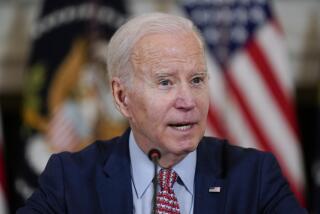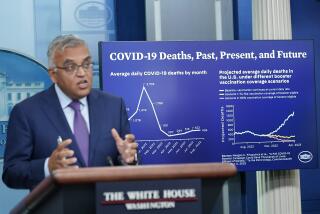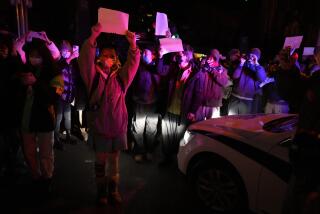Obama scales back public Ebola response after flurry of action
If last week was the peak of Ebola-related activity at the White House, this week appears to be the quiet comedown.
President Obama has toned down his public response to the health emergency that only days ago consumed most of his time. Whereas last week saw Cabinet-level meetings, travel canceled and regular statements from the president about the administration’s aggressive attempts to block the spread of the deadly virus in the U.S., this week – not so much.
Obama waited until Wednesday to offer an update on the government’s response. New restrictions on travelers from the outbreak’s epicenter in West Africa were announced by lower-level health officials, rather than the president. The new Ebola czar, named Friday to coordinate administration activity, waited until Wednesday to start the job. The arrival of the czar, Ron Klain, was marked by a photo op and brief comments from the president in the Oval Office. Klain did not speak, and he is not scheduled to testify at a congressional hearing on Ebola on Friday.
On Thursday, when Obama is scheduled to meet with science and technology advisors to discuss their suggestions for tackling the disease, there will be no press coverage allowed.
The down-shift may reflect the White House’s ongoing worries about spreading unnecessary panic. Administration officials have complained that media coverage of the first diagnosis in the U.S. and the subsequent infection of two Dallas nurses was overblown and exaggerated the threat to average Americans. Officials were reluctant to feed the anxiety with high-profile speeches or dramatic policy changes, they said.
Obama seemed to relent last week as the issue became politicized. Democrats in tight races in the waning days before the midterm elections began calling for more from the White House. Public confidence in the U.S. health system’s ability to handle the crisis had eroded quickly, according to polling.
In an Associated Press-GfK survey released Thursday, just 20% of the Americans polled said they approve of the Centers for Disease Control and Prevention’s work on Ebola and only 30% said they trusted the information about the virus coming from public health officials.
But with no new cases diagnosed and signs that Americans being treated for the disease are stable, the White House appears mindful that the level of anxiety may soon be receding. (Already, Ebola has been replaced by the shooting in the Canadian Parliament as the top cable news story.)
White House officials are keenly aware of the media’s boom-and-bust cycle on crises. Officials have privately observed journalists’ short attention spans on matters labeled scandals or crises, and that sometimes the focus lasts less than two weeks. That’s just barely enough time for talk of the CDC’s breached protocols and worry about the spread of Ebola to taper off before Americans vote on Nov. 4 – assuming no new cases emerge.
Still, the administration itself contributes to that cycle. The president tends to get more media coverage than, say, the CDC director, even if they’re delivering the same message. So keeping Obama out of the public eye for a few days can ease the pervasive public sense of anxiety about Ebola – and allow the White House to turn its attention elsewhere.
For more White House coverage, follow @khennessey
More to Read
Get the L.A. Times Politics newsletter
Deeply reported insights into legislation, politics and policy from Sacramento, Washington and beyond. In your inbox three times per week.
You may occasionally receive promotional content from the Los Angeles Times.







